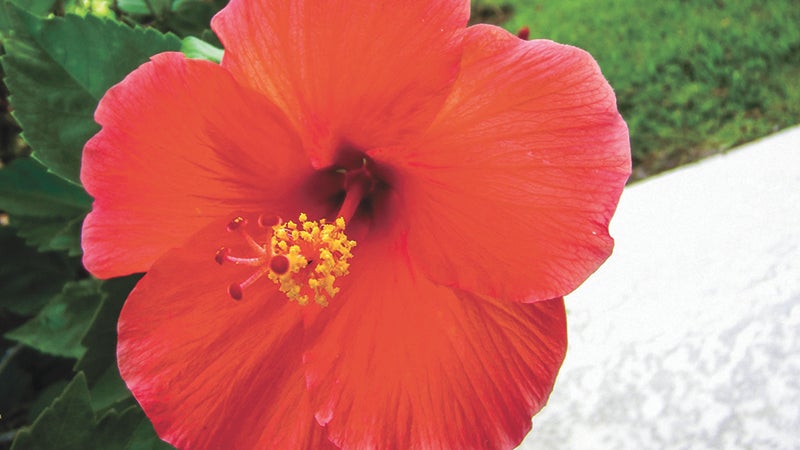OUT IN THE YARD: About cats, kids and Christmas
Published 11:27 pm Saturday, December 3, 2016
By Ann Bares
Early one Christmas morning, many years ago, a friend and his little daughter came by for hot chocolate and to show us what Santa had left under the tree for her.
Wrapped in a soft, tiny blanket, it was wiggling to get out, and to our surprise, when it did, we saw a tiny black and white skunk run up the tree and lay on a long branch, making itsself right at home. It was my first experience with a pet at Christmas. Now, after lots of pets and kids, I’ve learned they’re a lot alike, especially at Christmas, when there’s so much to pique their curiosity.
One story I’ve always heard was that the beautiful poinsettia was highly toxic, and deadly to pets and children, but while it may cause vomiting, will not cause death. Mistletoe and holly are mildly to severely toxic.
But what about the “real” Christmas tree?
Tipping it over or tearing up the colorful ribbons and paper underneath are the worst and most common problems, but there are a few that can be dangerous to both children and pets. “Real “ trees, especially firs, have oils that keep them fresh and green, but are highly toxic to humans and your small furry “children.” Chewing on the end of a branch can cause it to release its oils, which irritates the mouth and stomach, causing drooling, vomiting and intestinal issues, as the branch may break up into small bits that cannot be easy to digest, and can puncture the tender lining, or obstruct the intestinal tract.
Most live trees require a water container of some kind, with an additive like aspirin to keep it fresh, so it’s best to keep the container covered to keep your pets from drinking from it.
Artificial trees contain material that keep them beautiful year after year, but aren’t digestible, and contain toxins that are very dangerous to animals.
If you notice any difference in behavior in your four-legged children, such as drooling, excessive saliva or licking, or drinking an unusual amount of water, it may be time for a visit to your vet.
And, don’t forget to leave a little special Christmas surprise for your furry, four legged children, both inside and out, to find on Christmas morning.
Merry Christmas!
Contact Jefferson County Master Gardener Ann Bares at Abares2003@aol.com. If you are interested in becoming a Master Gardener, contact the Texas A&M AgriLife Extension Service at (409) 835-8461 for class information.



